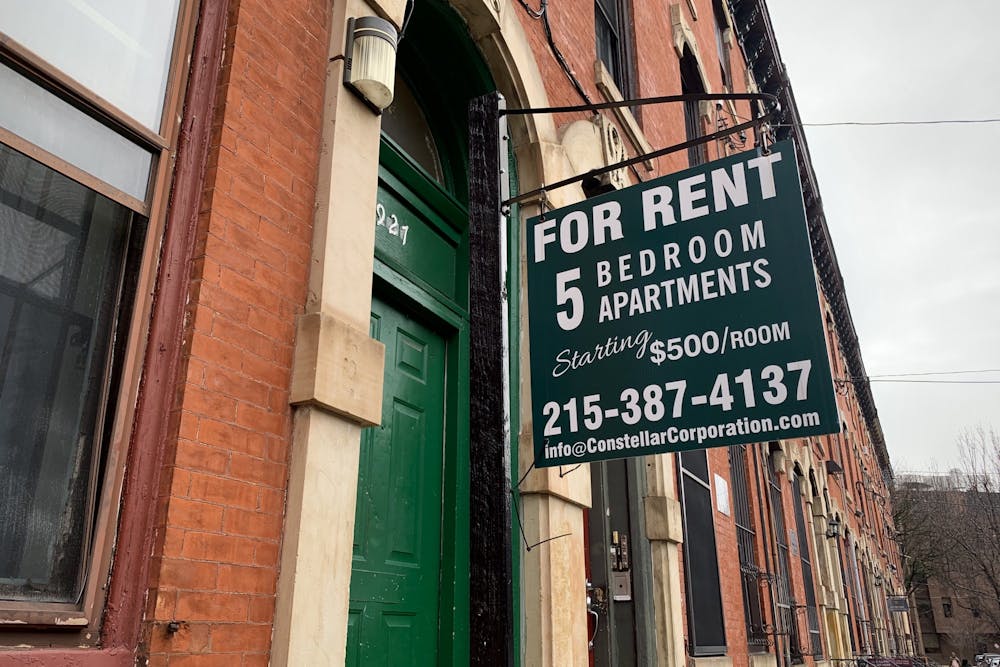
Housing Initiative at Penn, a project team in the Weitzman School of Design, is working with cities across the country to design and implement rent subsidy programs in light of the COVID-19 pandemic.
The onset of the pandemic left many low-income residents unable to pay rent, the Weitzman School of Design reported. HIP first gathered city officials from Philadelphia, Atlanta, Cleveland, Baltimore, Oakland, and Los Angeles in May to provide housing policy expertise and assist with the use of federal subsidies to implement rental-assistance programs.
HIP is a project under Penn Praxis, the Weitzman School’s branch for social impact and thought leadership. Their mission is to attain fair and equal housing policies across the country by conducting academic research, analyzing future trends, and developing programs and strategies related to the housing market, according to the HIP website.
Led by assistant professor of City and Regional Planning Vincent Reina and HIP director Claudia Aiken, HIP has been tasked with observing the impact rent relief will have on improving tenants’ financial security and wellbeing, as well as understanding the best practices of providing housing support.
HIP plans to survey residents over time about the long-term impact of financial assistance on their ability to pay for basic necessities like housing and healthcare, with the goal of understanding the efficacy of a locally funded rental-assistance program, Aiken told the Weitzman School.
Approaches and goals for each city have varied, according to the Weitzman School. While Baltimore has focused on assisting residents with overdue rent, other cities are working to ensure residents don’t fall behind on rent due to the evolving challenges of the pandemic.
HIP’s work with the Philadelphia Housing Development Corporation on implementing Philadelphia’s city-wide program has focused on how to design a rental assistance program most effectively, PHDC’s senior vice president of community investment Gregory Heller told the Weitzman School.
HIP has helped analyze the effects of providing direct cash assistance as opposed to housing choice vouchers, which help low-income residents gain access to the private housing market. These vouchers, however, have restricted efficacy because of a limited number of low-cost housing units willing to accept vouchers.
The data collected from these collaborations will help HIP and partner cities understand the impact of rent assistance for low-income tenants, specifically during crises, and ultimately design more effective programs, according to the Weitzman School.
“Our housing affordability problem is only going to be worse at the tail end of this, and we should not be convinced that this is the last pandemic or the last natural disaster or shock that we’re going to be seeing nationally or globally,” Reina told the Weitzman School.
HIP has previously carried out studies on Los Angeles’s housing choice voucher program to identify the effect of vouchers on residents, as well as perform research regarding housing barriers for Asian and Latinx communities in Philadelphia. It has also worked with several cities to develop housing plans, including Cincinnati’s Housing Our Future strategy to give everyone access to affordable housing, and Philadelphia’s Housing for Equity to increase homes at all income levels.
HIP’s team also consists of data director Sydney Goldstein and postdoctoral fellow Jamaal Green, and has garnered the additional support of seven Design fellows to design and implement the rental-assistance programs, according to the Weitzman School.
The Daily Pennsylvanian is an independent, student-run newspaper. Please consider making a donation to support the coverage that shapes the University. Your generosity ensures a future of strong journalism at Penn.
Donate






